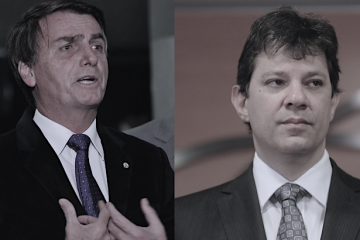
Brazilians’ other choice: the future direction of drug policy
On October 8th, Brazilians went to the polls to vote for a new President amid economic woes, an all-encompassing seeming corruption scandal, and, a deteriorating security situation. With the most popular candidate, former President Ignacio “Lula” da Silva, banned from appearing on the ballot due to a conviction earlier this year, and, incumbent President Michel Temer deeply disliked, controversial right-wing candidate Jair Bolsonaro became the odds-on favourite. Outperforming predictions, Bolsonaro received 46% of the votes. However, because he fell short of securing the outright majority of votes, he will face the runner-up, Fernando Haddad, who received 29% of the votes, in the second round of the elections on October 28th. While much has been written about Bolsonaro’s affinity to and …
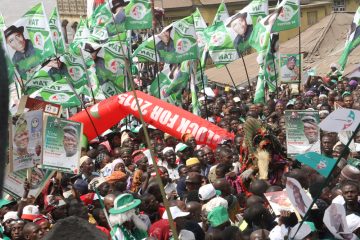
Will 2019 Witness a Protest Vote against Nigeria’s Ruling Party?
The 2019 presidential election will mark a defining moment in Nigeria’s hectic political history. Tensions are rising ahead of the elections in February when the polls will mark the first contest after an opposition leader defeated an incumbent president since the return to civilian rule in 1999. In the 2015 election, the All Progressives Congress (APC) defeated then-President Goodluck Jonathan’s People’s Democratic Party (PDP). Today, APC faces the prospect of electoral defeat just four years after it came into power. Neither President Muhammadu Buhari, nor any of the likely main opposition candidates, has a clear support base. In the lead-up to Nigerians heading to the polls in early 2019, the deteriorating security situation of Africa’s largest economy is particularly worrying. …
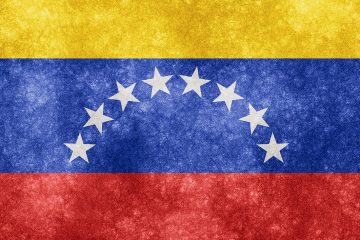
Why Venezuela is Collapsing but President Maduro Still Standing
Creating external crises to deviate from internal problems is a well-known recipe in politics. Unpopular dictators often resort to this tactic to shape the discourse and concerns of the opposition, media, and population. In Venezuela, President Nicolas Maduro has adopted this tactic since day one. The regime’s latest attempt to induce a crisis was fabricating the notion that the opposition, in collaboration with the U.S., sought to end Maduro’s life with a drone attack. Nobody has taken this story seriously. Thus, this piece will not waste time discussing the drone affair but will instead focus on five issues that really matter. Nobody Chose This When thinking about the Venezuelan crisis, one might erroneously believe that people chose this type of …
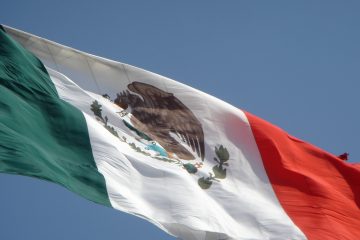
Mexico’s Election: The Good, the Bad and the Ugly
Come Sunday at 6 p.m. (GMT-5) Mexican citizens will have had elected not only a new president, but also over 3,400 new public officials. Being the largest electoral process in Mexican history, this third federal voting round in the post-transition era determines not only Mexico’s future, but —along with several other elections in the region— it also helps configure the ideological composition of Latin America. Instead of providing an overview of the contenders or discussing the trade-offs and the potential risks of the populist left, I will a) assess the campaign, b) zero in on the topics to look out for during and after election day and lastly, I will also c) identify key challenges for the future. My assumption or rather …
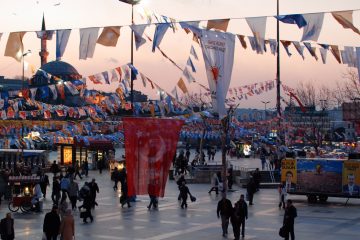
Six Takeaways from Turkey’s Election
According to the official results, the coalition led by the ruling AKP has secured a parliamentary majority, and Recep Tayyip Erdoğan remains president following the first ever simultaneous parliamentary and presidential election on June 24. Below are some takeaways from Turkey’s historic election: Erdoğan was not built in a day, and neither will be Ince. Erdoğan was elected mayor of Istanbul in 1994 and undertook many practical reforms involving infrastructural improvements. He bided his time until 2002, when he led the AKP to power. Under his mayoral watch, the municipal water system was improved, metro lines were built, trash was picked up regularly, and a political machine was built slowly thanks to the support of small business owners and conservative migrants …

Turkey’s Election: “It’s the Economy, Saftirik”
The lights shine, the cameras zoom, and the serious intro music fades. “Let’s talk about the hottest topic: the economy,” says the CNN Türk news program host. On the left are three journalists from mainstream Turkish news outlets, on the right is Muharrem İnce, the presidential candidate of CHP, the center-left party and opposition candidate with the best shot at unseating president Recep Tayyip Erdoğan. The stone-faced journalist from Hürriyet asks the first question: “It is said that speculators, FETÖ (the term for the followers of accused coup plotter Fethullah Gülen), and economic masterminds are working together and have hurt the capacity of the AKP to help the economy. It’s an economic coup, they say. What do you say?” İnce doesn’t take the …
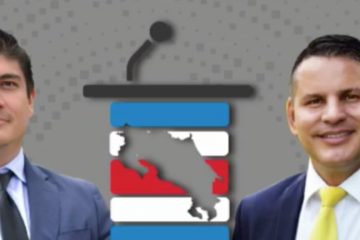
Costa Rica’s Election: How an Evangelical Singer Might Become President
On February 4th, Costa Ricans defied predictions by giving Fabricio Alvarado Muñoz from the Partido Restauración Nacional (PRN) the most votes. With 24,99%, he won ahead of Carlos Alvarado Quesada from the governing Partido Accion Ciudadana (PAC) with 21,63%. As no candidate overcame the 40% requirement to outright win on the first round, these two candidates are now facing each other in the run-off election on April 1st. This outcome represents a remarkable reversal of fortunes, as none of the two candidates surpassed 7% in the polls one month before February’s first round election. How did Alvarado Muñoz, an evangelical singer, who puts his religion front and center, come to lead in the polls going into Sunday’s run-off election? Upending …

Will Venezuela transition to democracy this year?
On May 20th, Venezuelans are supposed to vote in a presidential election to decide over the fate of their crisis and conflict ridden country. Despite being nominally given the opportunity to choose, the way the Maduro government has set up the electoral process, committed fraud, repressed the opposition and systematically undermined the process of free and fair elections over the past years, all but guarantees authoritarian durability. This article addresses why a) a highly unpopular incumbent is likely to hold onto power, b) the opposition is justified in their decision to boycott the elections and c) how Venezuela might transition to democracy. Venezuela has transitioned from a weak democracy in 1998 to a failing dictatorship in 2018. Over the past …









